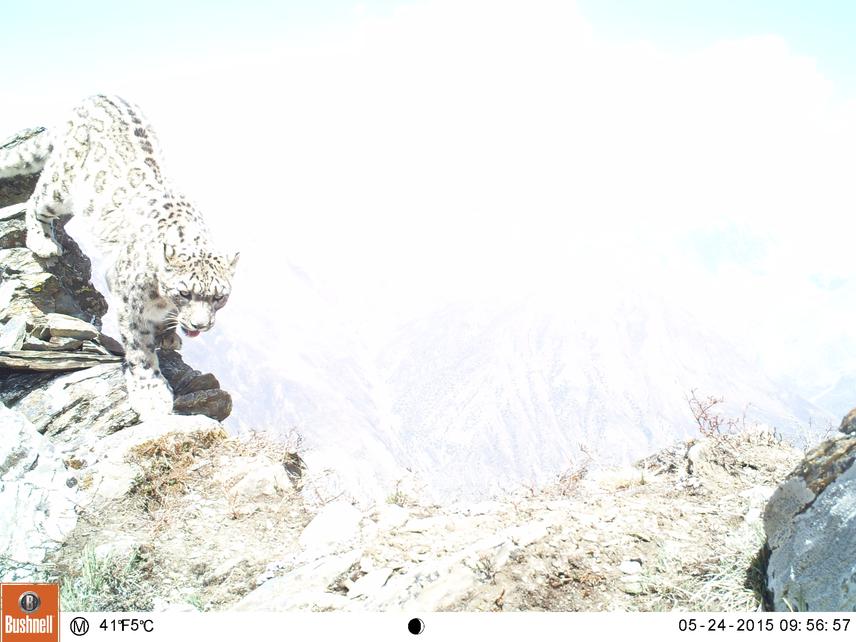Ganesh Puri
Other projects
27 Jun 2018
Understanding Patterns and Dynamics of Herders-Snow Leopard Conflict for Piloting Non-Lethal Mitigation Measures in Dhorpatan Hunting Reserve, Western Nepal
25 Oct 2023
The Fish Bank Project: Transforming Fishing Cat and Fish-Farmers Conflict into Conservation
This radio project aims to educate, empower and impart knowledge and importance of snow leopards to local communities in eastern Himalayas.

A snow leopard photographed in Manang. ©Tashi Rapte Ghale, Global Primate Network Nepal
The snow leopard is an endangered predator with declining population trend throughout its global distribution range including the eastern Himalayas. Major threats to the snow leopard include prey base depletion, illegal trade, and conflicts with local herders, and lack of conservation capacity, policy and awareness (Snow Leopard Network 2014, Jackson et al. 2010). Among these threats, the general lack of awareness at local, regional and national levels plays the vital role and further hinders conservation efforts (Jackson et al. 2010). The Snow Leopard Survival Strategy (Snow Leopard Network 2014) has recommended improving conservation education and public awareness among a variety of stakeholders, from local communities to park rangers and the policy makers as a first and the most important step to mitigate the survival threats of snow leopard. There is an urgent need to sensitize the rural communities who live in and around snow leopard habitat. The radio is the only option available for mass media awareness in such rural and inaccessible mountain habitat where other sophisticated media like televisions, internet and daily newspapers are still not available. This radio project therefore aims to educate, empower and impart knowledge and importance of snow leopards to local communities in eastern Himalayas.
This project will reach to the estimated one million people in the eastern Himalaya and critically the estimated 50,000 living beside snow leopard in high elevations. This awareness programs make the local people cautious about the intruders and poachers roaming around the snow leopard habitat and their communities and help the park rangers and security personnel with information about such suspected people and wildlife crime activities. The interactive radio dramas and the episodes about wildlife laws and policy will motivate the local hunters to abandon their hunting profession and will engage in other business; even these hunters can be turned into local citizen scientists over time. The radio episodes about the snow leopard ecology and behavior will help the herders to understand this predator and they could plan for snow leopard friendly strategies to save their livestock. The project will also identify and collect the problems of herders in the area and air via radio stations, which help them to share these problems and their essentials with the park officials and bridge the communication gap between them.